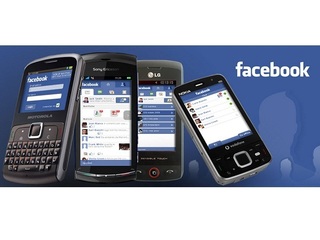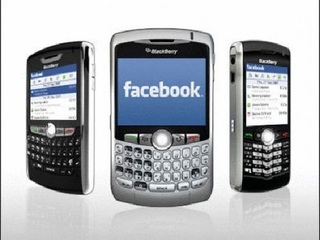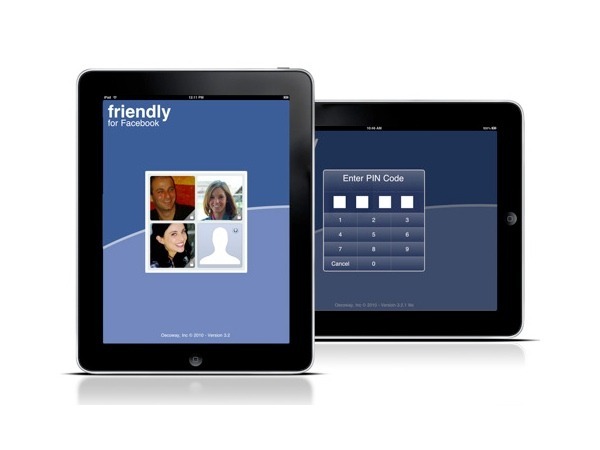
Users have been try vocal about the short-comings of the Facebook app lately. From unexpectedly shutting down to absurdly slow loading times, the Facebook app has left a lot to be desired. And it looks like Facebook has been toiling away at its app and on Thursday it released an update of its iOS app that is now twice as fast as the previous version, thanks to the use of Objective-C not HTML5.
The app is able to cutdown the load times because content is cached between views and has built-in the Messenger functions. This update also allows people to see profiles that are ported over to Timeline, which the previous app was not equipped to do.
The previous app was purposely not built for speed because the company was trying to scale up as fast as possible.
Facebook explained in its blog post that “the app opens much faster and your news feed and notifications load right when you open Facebook.” Some users, myself included, would wait in excess of 10 seconds for the news feed to update and now it is only three or four seconds to get to a fresh feed.
Another functionality that should help people adopt and keep the app user base up is by updating the stories faster and allow users to jump from feature to feature without re-loading and updating the place.
Currently, Facebook users are using the mobile site [m.facebook.com] twice as much as the iOS and Android platforms.
While there is still a lot of room for improvement in the mobile experience of Facebook, the update should make the hundreds of millions of Facebook on iOS happy. The roughly 130 million Facebook for iOS users will be more likely to browse the feed for longer and see more ads — an element that Facebook is milking as much as possible as it continues to evolve and adapt its mobile advertising system.
In a pre-IPO document filed with the SEC in May, to say that it does “not currently directly generate any meaningful revenue from the use of Facebook mobile products, and our ability to do so successfully is unproven.”
That was a pretty bleak assessment of an area that the company, one way or another, has to tackle eventually, as mobile is growing quickly.
In 2011, it accounted for 10% of Internet traffic, up from 1% in 2008. The U.S. mobile advertising market, driven in large part by tablets and smartphones, is estimated to reach $2.6 billion in 2012, up 80% from last year. The market was $769 million in 2010.
Something obviously must have sparked inside Facebook in the past few months, because it has finally figured out how to make money off mobile.
Facebook introduced Tuesday a new mobile ads for apps, which will allow app developers to advertise on News Feeds on Facebook’s mobile app.
“Facebook has increasingly become a way for iOS and Android developers to grow their apps. In the past 30 days, we have sent people to the Apple App Store and Google Play 146 million times, via clicks from channels such as news feed, timeline, bookmarks and App Center,” Facebook software engineer Vijaye Raji wrote in a blog post.
The ads will appear in user News Feeds as what looks like suggestions, or recommendations, for which apps a user may like. For example, it may come under the header “try these games.” Once a user clicks on one of the ads, or suggested apps, they will be redirected to either the iOS App Store or to Google Play to purchase that app.
The ads can be specifically targeted to certain audiences, specified by age group, gender and region. Tools will also be provided to the developers that will help them monitor the effectiveness of the advertisements.
Mobile ads for apps are currently in the beta stage, and Facebook is currently taking signups.
According to a filing with the SEC last month, Facebook saw its mobile monthly active users (MAUs) increase by 67% in the course of one year, from June 30, 2011 to June 30, 2012.
In June of this year alone, 102 million Facebook users accessed the site exclusively through the mobile app or mobile website, a 23% increased from the 83 million who did the same during March.
The 102 million accounts for nearly 20% of the 543 million MAUs Facebook had in June. The other 441 million, the document says, accessed from both a personal PC and a mobile device.
“Mobile is a huge opportunity for Facebook,” CEO and founder, Mark Zuckerberg pointed out in an earnings call following the release of its quarterly earnings report last month.
“On average, mobile users are around 20 percent more likely to use Facebook on any given day. So mobile not only gives us the potential to connect more people with our services, but it also gives us the ability to provide more value and a more deeply engaging experience.”




















